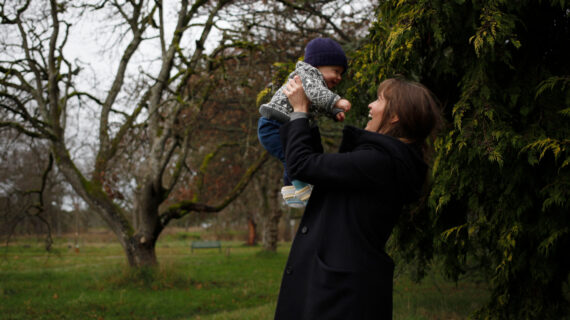Cardus is a think tank of unlikely origins fighting an unlikely battle in our individualistic society.
With humble beginnings in 1974 as the Work Research Foundation, toiling alongside and in support of the Christian Labour Association of Canada, it was originally a vehicle for the odd conference or book.
It existed that way for two decades, a quirky research charity working alongside a Christian trade union, inspired by the Christian Democratic tradition in Europe. But in 1996, a grant came in from the Donner Canadian Foundation that allowed the Work Research Foundation to dig into freedom of association in Canadian labour relations and, over the course of that work, a bigger idea was born.
Five years later, Cardus came into existence in the fall of 2000, with Michael Van Pelt as the first full-time employee and president of the think tank. Ray Pennings, who had secured the initial grant in 1996, and masterminded the project with Van Pelt in the late ’90s, became the executive vice-president.
Having both explored the world of politics, Pennings and Van Pelt had come to realize that the big ideas come from outside the system, not from within.
“We increasingly came to the realization that when you apply a long-term theory of influence on that work, we realized that we needed to have a deeper and more robust platform for long-term influence,” said Van Pelt. “That obviously turned out to be right. Political parties have taken on very narrow functions. The ideas that we think are important in today’s society needed a different kind of platform to advance and create robust dialogue.”
They’ve seen their ideas filtering into provincial labour legislation, the K-12 education world, and even into a Conservative Party that looks a lot more Cardus-friendly than it did a decade ago.
The two friends now lead a staff of 30 people, with a budget of $5 million, and work from an office three doors down from the Parliament buildings in Ottawa. Cardus is celebrating its 20th birthday (a year late thanks to the COVID-19 pandemic) and, last night, former Governor General David Johnston spoke at a gala event to ring in the anniversary.
Our future leadership
To celebrate the occasion, Cardus commissioned a poll to get a sense of how Canada’s future and present leaders feel about the country and where it’s headed.
Some of the results are surprising and, for a faith-based think tank, they may represent opportunities.
The poll, which Cardus conducted with the Angus Reid Institute, divides the respondents up into two categories: leaders and everyone else. By kicking off the survey with a series of psychographic questions that research has shown relate to leadership ability, the poll shows how young leaders may end up shaping our country and how our current leadership class feels about the job they are currently doing.
Canada’s young leaders’ thoughts on religion in society may cut against conventional wisdom.
In a country where people think religious influence in society is waning and the share of people identifying as Christian is declining, Canadians aged 18 to 29 are actually more inclined to want God and religion in public life.
More than 40 percent of Canadians aged 18 to 29 think people in public life should feel free to speak and act based on their religious beliefs. That number drops to 23 percent for leaders between the age of 55 and 64 and 28 percent for leaders over the age of 65.
The polling data is drawn from a survey conducted at the end of July among 4,094 respondents to an online survey. For comparison purposes, a probability sample of this size would carry a margin of error of 1.5 percentage points, 19 times out of 20.
Younger Canadians are also more likely to believe there is a role for religion in political activism, although Canadians, in general, think that’s a bad idea. Among leaders older than 65-years-old, 74 percent agree that “there is no role for religion in political activism,” with that number dropping to 70 percent among leaders aged 18 to 29, which is roughly consistent with the average among Canadians.
Pennings sees reason for hope in the polling data
“When you take a look at the growing demographics in Canada, they indeed are people who are actually taking faith and the application of faith and public life more seriously than the previous generation,” said Pennings.
“There is an overall shift towards the non-religious side. But that’s a shift out of the middle. When we did our first survey, the very religious number was at 19 percent and in this survey, it’s still at 19 percent,” he said.
The area where younger and older Canadians disagree the most is on the achievements of past generations. In general, older Canadians think they’ve done a pretty good job and younger Canadians are much less sure.
Among leaders older than 65, about 87 percent think the legacy of the Baby Boomers is positive, while only 31 percent of leaders aged 18 to 29 agree with them.
One thing older Canadians will admit, though, is that they’ve been pretty lucky. Seventy-four percent of leaders older than 65 say their generation has been lucky and had plenty of opportunities.
With young leaders holding a relatively skeptical view of their predecessors, it may be no surprise that they are more inclined to tear things down and start fresh than build on the successes of the past.
Among leaders aged 18 to 29, nearly half think the best approach to change is “starting new and restructuring society differently,” rather than building on the achievements of past generations or fixing the mistakes of past generations.
The connecting road
What makes Cardus an unlikely think tank? The clue is in the name.
The Cardus was an ancient north-south road connecting the people of Roman cities to their public spaces.
While modern conservatives are comfortable pointing out all the different ways that government is the problem, or is not the solution to a problem, it’s less comfortable actually explaining what is the solution.
For Cardus, the answer is found in culture, religion, and civil society, which means we need to build a road that connects these things to politics and policymaking.
“When you don’t have an emphasis on the institutions between individuals and government, you’re left with just the bipolar choice of government or individuals,” said Pennings. “On the one hand, government can’t solve all your problems. But there are other institutions in society when they’re healthy, they can.”
Even as the Western world appears to be rapidly secularizing, Pennings and Van Pelt believe the desires and beliefs of Canadians are still fundamentally the same.
“Families still want to be stable. Parents still want to love their children and care for them in the best way possible. Economic wealth doesn’t bring you happiness,” said Van Pelt.
“We need to continue making the argument that thoughtful perspectives on faith, especially the Christian tradition, have something to offer those yearnings today.”




